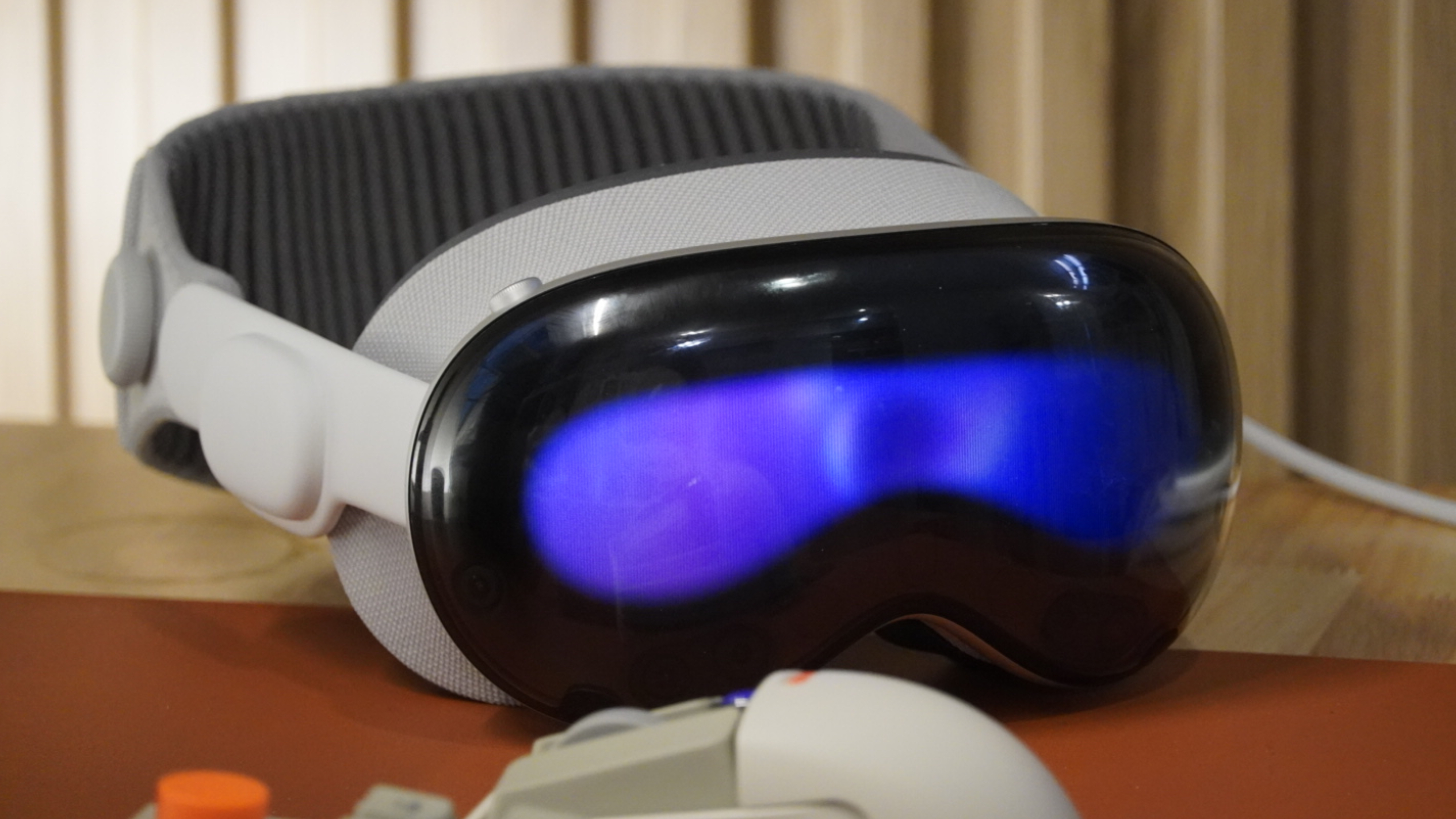Apple reportedly halts Vision Pro 2 plans to focus on a cheaper alternative — the right move, as buyers balk at the current $3,499 asking price
People just don't want to pay it.

The Apple Vision Pro might not be getting a sequel, at least not one with similar high-end features and a huge price tag to match. That's according to a new report claiming that Apple decided to cancel plans for a next-gen Apple Vision Pro spatial computer.
That doesn't mean that there won't be any new Apple Vision Pro releases, however. According to that report, Apple does indeed plan to release a new headset next year, but it won't be the all-singing, all-dancing replacement for the current model that people had been expecting. Instead, this model will be a cheaper alternative for people who would rather not spend the $3,499 required to put the current model on their heads.
That might be a controversial decision for those who are already looking forward to seeing what Apple can do when it pushes the envelope yet further after a reach-for-the-stars launch of the original headset. But for most people, and likely for Apple itself, the decision to ditch plans for a new high-end model is absolutely the way to go. Whether or not mixed reality headsets are the future of computing remains to be seen. But just as was the case when possession of a personal computer became the norm in the 1990s, it will only happen once more people can afford to actually buy one.
A change of plan
The revelation comes via a report by The Information's Wayne Ma Qianer Liu which details Apple's plans based on information that at least one supply chain partner has been told.
Supply chain analysts and industry watchers have long suggested that demand is starting to wane for a headset that was always seen as a luxury product for early adopters. The $3,499 starting price was always going to be a sticking point for the general public though, and many saw the Apple Vision Pro as something of a tech demo crossed with a developer kit — a device designed to show what can be down and to get people (and developers) excited about the future of spatial computing.
But that future of spatial computing still has to happen one way or another, and it appears that Apple has decided that finding a way to produce a cheaper headset is the only way to rekindle interest in the company's AR plans.
"The company is still working on releasing a more affordable Vision product with fewer features before the end of 2025," a supply chain source reportedly told The Information. "Apple originally planned to divide its Vision line into two models, similar to the standard and Pro versions of the iPhone, according to people involved in its supply chain and former Apple employees who worked on the devices."
Master your iPhone in minutes
iMore offers spot-on advice and guidance from our team of experts, with decades of Apple device experience to lean on. Learn more with iMore!
This news comes as Apple is getting ready to launch the Apple Vision Pro outside the United States for the first time, complete with its high asking price. It will be very interesting to see what kind of demand the headset garners in international markets, especially now that the initial excitement of a new product category has died down following the February US launch.
No matter how the global launch is received by customers around the world, it's increasingly clear that a cheaper price point is needed if sales are to increase. The only real question is how cheap Apple can really make such a device and which features will be removed in order to make it happen.
More from iMore

Oliver Haslam has written about Apple and the wider technology business for more than a decade with bylines on How-To Geek, PC Mag, iDownloadBlog, and many more. He has also been published in print for Macworld, including cover stories. At iMore, Oliver is involved in daily news coverage and, not being short of opinions, has been known to 'explain' those thoughts in more detail, too. Having grown up using PCs and spending far too much money on graphics card and flashy RAM, Oliver switched to the Mac with a G5 iMac and hasn't looked back. Since then he's seen the growth of the smartphone world, backed by iPhone, and new product categories come and go. Current expertise includes iOS, macOS, streaming services, and pretty much anything that has a battery or plugs into a wall. Oliver also covers mobile gaming for iMore, with Apple Arcade a particular focus. He's been gaming since the Atari 2600 days and still struggles to comprehend the fact he can play console quality titles on his pocket computer.
